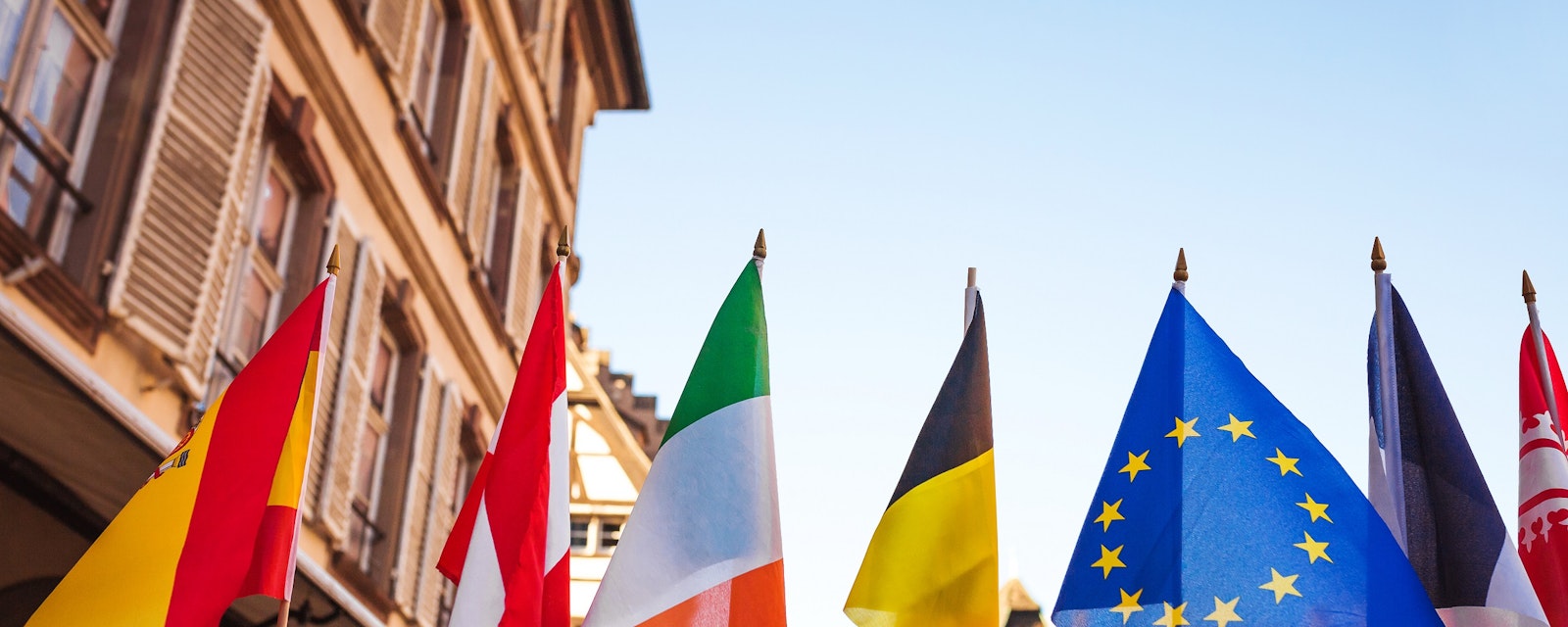Europe’s reliance on international supply chains has proven contentious as the effects of the COVID-19 pandemic ripple through the economy. EU policymakers are now calling for production to be ‘reshored’, restriction of foreign investment and a tougher trade defence policy.
The industrial policy pivot toward supporting ‘European champions’, screening foreign investments in strategic sectors and more assertive foreign policy, have also enjoyed expanded support. The EU’s push for greener policy has also led to calls for more taxes on air and sea shipping emissions, and a more robust ‘circular economy’ to make the EU less dependent on imports of raw materials. The unrestricted movement of goods and people, severely impacted by the COVID-19 lockdowns, could also take time to return to normal.
Free Movement of Persons, Goods and Services
When Covid-19 struck the EU, emergency-plans were outdated and stocks of personal protective equipment (PPE) insufficient. This led to panic reactions and the introduction of internal border restrictions for the movement of persons and goods, contravening EU law, and ignoring scientific advice. The EU was caught unprepared, having underestimated the risk given that previous contagions like SARS or Ebola were contained before they reached the EU.
The European Commission convinced Member States to back down on intra-EU export restrictions on personal protective equipment and to create “green lanes” at borders within the bloc to ensure the flow of goods. These urgent measures were largely effective in an economy under lockdown with limited activity. Additional measures will be needed when production and consumption pick up again, to avoid these temporary measures becoming overwhelmed by increased trading volumes. Notably, sea, rail and air freight will need to be covered by measures ensuring cross-border goods flows, not just trucks. Failure to do so could be a serious risk to the post-crisis recovery.
When it comes to the movement of persons, restrictions have largely been accepted by citizens, despite the lack of scientific proof of their effectiveness. But keeping borders closed as summer approaches could devastate the tourism sector, which represents 10 percent of EU GDP and 12 percent of employment. Restricted travel could also negatively impact the EU economy’s services sector.
For now, the Commission has extended existing internal EU travel bans to 15 June and is taking a careful approach to their removal. It is likely to happen on a case-by-case basis, depending on the spread of the virus in each country (and border regions) as well as the testing and health care system capacity of a country. The EU and Member States could, however, always reimpose travel bans in case of a second or third wave of the pandemic. Even in an optimistic scenario based on the rapid development of a vaccine, a full return to the free flow of persons within the Schengen zone is uncertain. The COVID-19 crisis follows the use of border controls to manage the refugee crisis, and there is a risk that the EU’s crisis preparedness response incorporates a systematic reintroduction of border controls in the long term.
International trade
At the start of the crisis the EU tolerated temporary export restrictions for medical products and devices, as a necessary condition to convince Member States to remove internal export restrictions. These restrictions were not well received by the affected third countries, even though they have now been removed and are allowed by the World Trade Organization.
The security of supply chains is now likely to come back to the discussion table as Member States negotiate the EU’s future trade policy. Some EU countries have replaced imports of protective masks with domestic production or converted car manufacturing plants into ventilator factories. Some policymakers are now drawing inspiration from the EU’s response to the 1970s oil supply crisis, when countries started building strategic oil stocks for emergency use.
Nevertheless, once the current crisis has passed, the EU’s trade policy is unlikely to fundamentally change, because:
- The attempt to substitute imports of masks by EU own production has only had limited success and illustrates that the domestic production of a simple product like face masks comes with a high price tag compared to imported goods. Repurposing factories in other sectors to produce and assemble the 900 parts that are needed for medical ventilators was also problematic. The return to adequate supplies of protective equipment, COVID-19 tests and medical devices was a result of traditional suppliers inside and outside the EU, not new or repurposed production capacity.
- The EU is also more dependent on international trade than any other economic bloc. Europe can neither afford to cut off international demand for its products nor pay the high prices resulting from replacing imports by internally produced goods.
The EU will, therefore, continue to be a strong supporter of multilateral trade policy and open markets through new free trade agreements. An investment treaty with China could be the first step. The EU will not follow US President Donald Trump’s attacks on the World Trade Organization or China since the latter is considered by the EU as both a strategic partner and a systemic rival. China’s lack of political liberalization conflicts with the EU’s interests and values but does not preclude wide-ranging cooperation.
This does not mean, however, that everything will carry on as before after the crisis. EU companies will have rediscovered the untapped potential of the EU’s internal market. The Commission’s enforcement of internal market rules may have a greater impact than new legislation in the short term, particularly given that law-making will be complicated by the ongoing partial lockdown of the EU institutions.





